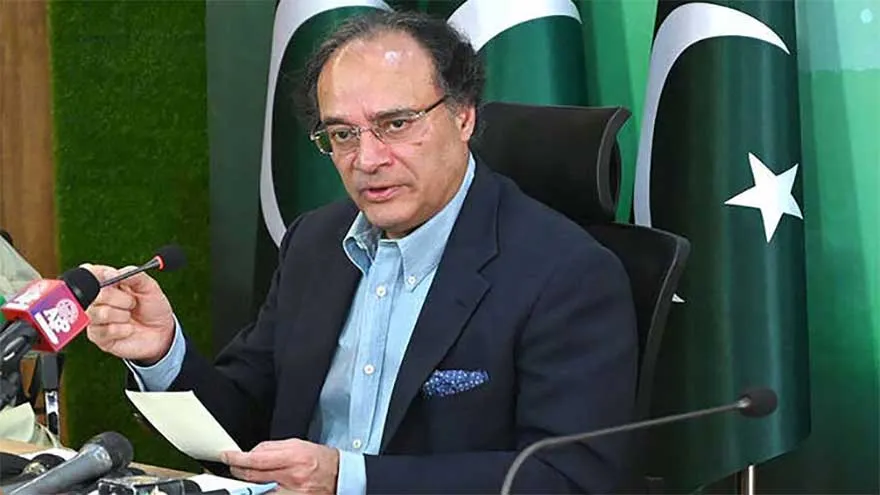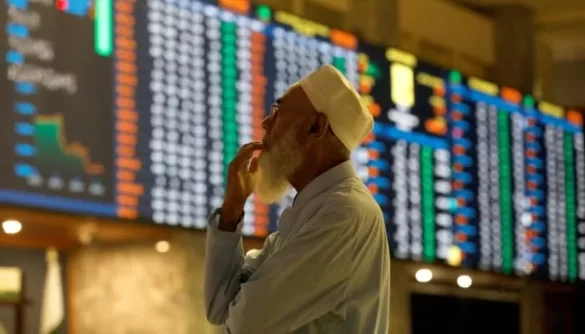Pakistan’s economy has entered a phase of consolidation marked by improved macroeconomic indicators, fiscal discipline, and enhanced foreign exchange reserves, according to Finance Minister Muhammad Aurangzeb, who spoke in an interview with CGTN America. Despite severe flooding, he said the country remains on track to achieve around 3.5% GDP growth this fiscal year.
Macroeconomic Stability Strengthened
Aurangzeb said Pakistan’s recovery momentum has been sustained since the IMF approved a $7 billion loan programme last year.
“All global rating agencies—Fitch, S&P, and Moody’s—have upgraded Pakistan’s outlook for the first time in nearly three years,” he said.
He added, “We have consolidated gains on the macroeconomic front. Our reserves now cover two and a half months of imports, inflation has fallen to single digits, and the policy rate has been halved.”
IMF Confidence and Structural Reforms
The finance minister confirmed that the IMF’s second review under the Extended Fund Facility was successfully completed, leading to a staff-level agreement that reflects renewed confidence in Pakistan’s reform agenda.
“We are grateful that the IMF management continues to trust Pakistan’s authorities, especially on structural reforms in taxation, energy, public finance, and privatisation,” Aurangzeb said.
Return to Global Markets and Panda Bond Launch
Aurangzeb noted that Pakistan had re-entered international commercial markets after more than two years, raising funds from Middle Eastern banks and preparing to issue its first Panda bond by year-end.
“We even repaid a $500 million Eurobond last month without market concern,” he said, highlighting improved investor confidence. Pakistan also plans to repay another $1.3 billion in April next year.
UK Lifts Travel Ban on Pakistani Airlines, Clears Path for Flight Resumption
Privatisation Drive Resumes
The minister said the government had revived the stalled privatisation process, completing its first transaction—a small bank acquisition by a UAE-based conglomerate.
“This investor will expand and digitise its operations,” he said, adding that the privatisation of Pakistan International Airlines (PIA) is expected to conclude before the fiscal year ends.
Floods Challenge Growth, Climate Change Remains a Threat
Aurangzeb acknowledged that flooding and climate change continue to weigh on Pakistan’s agriculture sector.
“Climate change is an existential issue for us. Our rice and cotton crops have suffered due to flooding across three major rivers,” he said. Despite setbacks, growth is expected to hold around 3.5%, compared to an earlier projection of 4%.
CPEC Phase 2: From Infrastructure to Industry
Discussing Prime Minister Shehbaz Sharif’s visit to Beijing, Aurangzeb said Pakistan and China have launched CPEC Phase 2, shifting focus from infrastructure to industrial cooperation and private-sector investment.
“Phase 1 was about infrastructure. Phase 2 is about monetising it through Special Economic Zones and joint ventures,” he explained.
During the visit, 24 joint venture agreements were signed—transitioning from MoUs to actionable projects. “Our role is to create a conducive ecosystem for these ventures to thrive,” he added.
New Investment Priorities and Successful Joint Ventures
CPEC’s next phase will prioritise investment in mining, agriculture, IT, AI, and pharmaceuticals, including local vaccine production with Chinese firms. Aurangzeb cited the Service Long March venture—a partnership between Pakistan’s Service Group and China’s Long March—as a model of success.
“Eighty percent of its products are exported, and it could become the first Pakistan-China joint venture to list on the Hong Kong Stock Exchange,” he said.
Digital Reforms and Trade Diversification
Aurangzeb highlighted that AI-driven tax monitoring helped raise Pakistan’s tax-to-GDP ratio from 8.8% to 10.2%. The government is also working on trade diversification, negotiating tariff arrangements with the United States and expanding links with Central Asia.
Support for Global Governance Initiative
Concluding the interview, Aurangzeb reaffirmed Pakistan’s support for President Xi Jinping’s Global Governance Initiative, stressing that the country advocates multilateral cooperation, mutual respect, and sovereign equality in the evolving international order.















